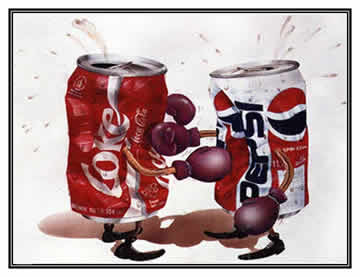DECISION SCIENCE RESEARCHER PROFILE: AMOS TVERSKY
Amos Tversky (March 16, 1937 – June 2, 1996) was one of the leading Psychologists of the 20th century, best known for the research program he advanced, in collaboration with Daniel Kahneman, generally known as the Heuristics and Biases program. It is thought that if Tversky were alive when Kahneman recently won the Nobel prize, he would have won as well.
“With Kahneman, he originated Prospect Theory to explain irrational human economic choices. Kahneman and Tversky pioneered the field of behavioral economics. In developing […] “prospect theory,” the psychologists argued that people are not as calculating as economic models assume. Instead, they said, people repeatedly make errors in judgment that can be predicted and categorized. A 1979 paper they wrote on the subject in Econometrica is one of the most widely cited papers in economics. As a statement by the Grawemeyer Award committee noted, “It is difficult to identify a more influential idea than that of Kahneman and Tversky in the human sciences.” (from Stanford University News Service)
“Tverskyâs most important papers, many of which were written with [â¦] Daniel Kahneman, were unique in their depth and in the breadth of their impact. Through a combination of carefully wrought experiments, elegant formalizations, and an uncanny ability to draw upon everyday experience, they offered compelling accounts of processes and shortcomings that characterize human judgment and decision making. Amos’ work already has exerted a major impact not only on virtually every sub-discipline of psychology, but also in statistics, law, medicine, business, and other fields in which decision makers must weigh costs and benefits in the face of uncertainty. The decision of litigants pondering whether to settle or go to court, engineers weighing safety measures, and young couples considering whether to invest in a trip to Paris or the down payment on a car can be understood (and often could have been made wiser) through his theorizing and research.
It is the science of economics, however, in which Tversky’s and Kahneman’s ultimate influence is likely to be most lasting and profound. Most economic analysis presupposes the rationality of actors’ decisions and of the judgments and predictions upon which those decisions are based. Tversky and Kahneman challenged such presumptions. They demonstrated that very small risks are given disproportionate weight, that prospective losses and gains are not treated symmetrically, that the presence or absence of non-selected alternatives can reverse preference orderings, and that the manner in which options are semantically or mathematically “framed” can exert undue influence on decision makers. These violations of normative standards, in turn, are apt to distort private decisions and public policy alike.
Although [Tverskyâs] best known work was contained in his papers on the heuristics of judgment and on sources of suboptimal decision making, Amos also made major contributions to many other areas of psychology, from the foundations of measurement to the nature of similarity assessment and the misperception of randomness or chance. As always, counterintuitive experimental results were his hallmark. In one notable paper, he illustrated that people judge similarity asymmetrically; for example, they regard Tel Aviv to be more like New York than vice versa (a powerful demonstration of the inadequacies of Euclidean metric models of stimulus presentation). In another instantly famous paper he confounded basketball experts by showing that the so-called “hot-hand” was an illusion, that successive “hits” and “misses” by NBA players did not cluster together more than expected by the dictates of chance. In yet another memorable study with Kahneman, he showed that Stanford undergraduates, guided by their reliance upon assessments of similarity or “representativeness” judged the likelihood that an outspoken young liberal named “Linda” (described to them in a brief paragraph) was a “feminist bank teller” to be greater than the likelihood simply that she was a bank teller, thereby violating a basic tenet of formal logic. Focusing again and again on the gap between actual human intellectual performance and the normative standards that should seemingly govern such performance, Amos produced at least a dozen papers that, even by his own stringent standards, can justifiably be termed classics.” (from Stanford University Memorial Resolution)
Tversky received his doctorate from the University of Michigan in 1965, and later taught at the Hebrew University in Jerusalem, before moving to Stanford University. In 1984 he was a recipient of the MacArthur Fellowship. In 1984 he was also presented the Guggenheim Fellowship.
SELECTED PUBLICATIONS:
Kahneman, Daniel; Slovic, Paul; Tversky, Amos. (1982) Judgment under uncertainty: Heuristics and biases Cambridge and New York: Cambridge University Press.
Kahneman, Daniel; Tversky, Amos. (2000) Choices, values, and frames New York: Cambridge University Press.
Coombs, Clyde H.; Dawes, Robyn M.; Tversky, Amos. (1970) Mathematical psychology: An elementary introduction Englewood Cliffs, N.J: Prentice-Hall.
Tversky, A., & Kahneman, D. (1974). Judgment under uncertainty: Heuristics and biases. Science, 185, 1124-1131.
(Thomson Texere), by Peter Rosenwald
(Sage Publications), by Gerard J. Tellis
(Prentice Hall, Pearson Education), by Tim Ambler
(Penguin Group), by Seth Godin
(Harvard Business School), by Patrick Barwise and Sean Meehan












